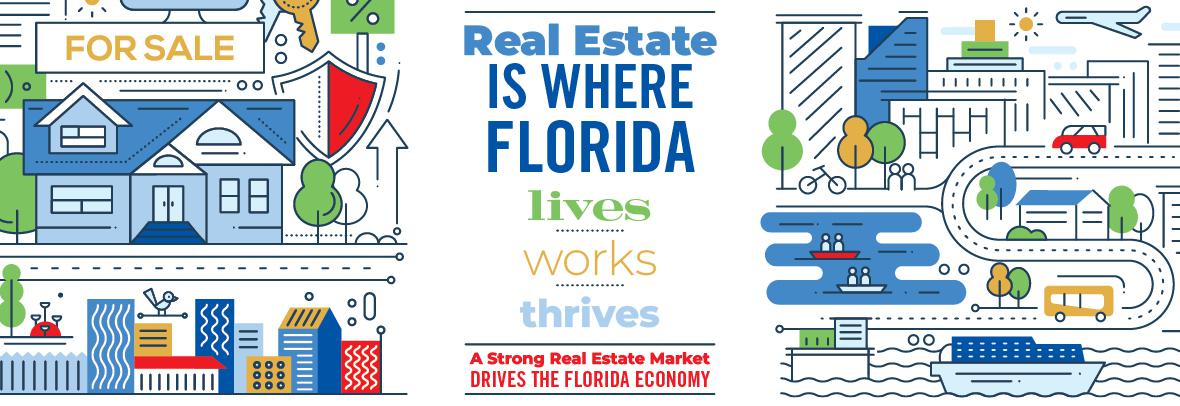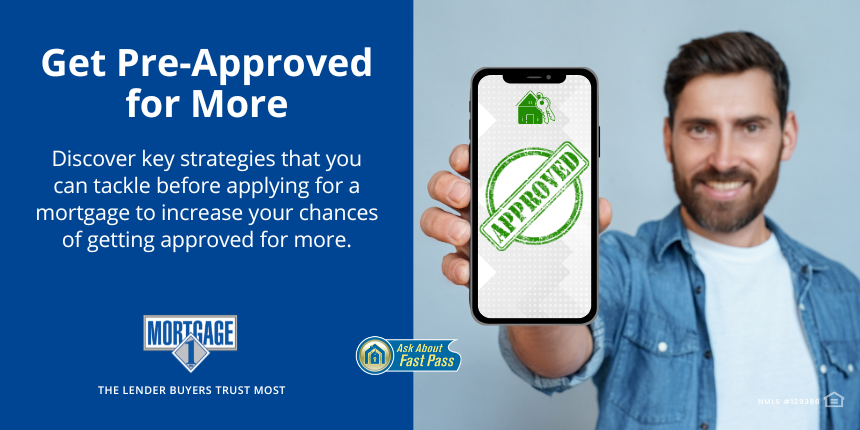Winter Park, Florida, renowned for its charming streets, upscale boutiques, and vibrant arts scene, is a highly desirable place to call home. But before you start picturing yourself strolling down Park Avenue, it’s crucial to understand the financial landscape of the Winter Park, FL real estate market. This comprehensive guide breaks down all the costs associated with buying a home in Winter Park, helping you determine exactly how much you need and providing essential home buying calculations to get you started.

Understanding the Winter Park, FL Real Estate Market and Home Price Trends
Winter Park’s real estate market is competitive, characterized by a blend of historic homes, luxury estates, and modern condominiums. Understanding the current trends in home price is crucial to setting realistic expectations.
Current Market Overview: The Winter Park real estate market generally sees higher average home prices compared to the national average due to its location, amenities, and desirability. As of late 2024, the median home price in Winter Park can range from $700,000 to well over $1 million, depending on the property type, size, and location within the city.
Factors Influencing Home Price: Several factors contribute to the cost of homes in Winter Park:
- Location: Homes closer to Park Avenue, downtown Winter Park, and near desirable schools command higher prices.
- Property Size and Condition: Larger homes, especially those that are newly renovated or in excellent condition, will be more expensive.
- Lot Size and Features: Properties with larger lots, lake frontage, or mature landscaping tend to be premium priced.
- Interest Rates: Fluctuations in mortgage interest rates directly impact affordability. Higher rates reduce buying power.
- Inventory Levels: Limited housing supply in desirable neighborhoods can drive up prices due to increased competition among buyers.
Keep an Eye on Market Fluctuations: The real estate market is dynamic. Stay informed about the latest trends by consulting with local real estate agents, monitoring online real estate portals, and following economic news that affects housing prices. This information will empower you to make informed decisions about your budget and timeline.
:max_bytes(150000):strip_icc()/down_payment.asp-final-569b6192247a427c8e3885ad7f502587.png)
Initial Costs: Saving for Your Down Payment
The down payment is the initial lump sum you pay towards the home’s purchase price. It’s one of the biggest upfront expenses, and the amount significantly impacts your mortgage terms.
Traditional Down Payment Amounts: Traditionally, a 20% down payment was the standard. However, many lenders now offer options with lower down payments, such as 3%, 5%, or 10%.
Pros and Cons of Different Down Payment Amounts:
- 20% Down Payment:
- Pros: Lower monthly payments, better interest rates, no private mortgage insurance (PMI).
- Cons: Requires a significant amount of upfront savings.
- Lower Down Payment (3-10%):
- Pros: Makes homeownership more accessible, allows you to buy sooner.
- Cons: Higher monthly payments, higher interest rates, requires private mortgage insurance (PMI).
Calculating Your Down Payment Goal: To determine your down payment goal, start with your target home price. For example, if you’re aiming for a $750,000 home and want to put down 10%, your down payment goal is $75,000.
Example:
- Target Home Price: $750,000
- Desired Down Payment Percentage: 10%
- Down Payment Amount: $75,000
Saving Strategies:
- Create a Budget: Track your income and expenses to identify areas where you can save more.
- Automate Savings: Set up automatic transfers from your checking account to a dedicated savings account each month.
- Cut Unnecessary Expenses: Identify non-essential spending and redirect those funds to your savings goal.
- Consider a Side Hustle: Explore opportunities to earn extra income through freelance work, part-time jobs, or selling unwanted items.
- Utilize Gift Funds: In some cases, lenders allow you to use gift funds from family members towards your down payment.

Closing Costs: The Expenses Beyond the Home Price
Closing costs are fees associated with finalizing the home purchase. These costs can add up quickly, so it’s essential to factor them into your budget.
Common Closing Costs in Winter Park, FL:
- Lender Fees: Include application fees, appraisal fees, credit report fees, and underwriting fees.
- Title Fees: Cover title search, title insurance, and settlement fees.
- Government Fees: Include recording fees and transfer taxes.
- Prepaid Expenses: May include homeowner’s insurance, property taxes, and initial escrow deposits.
Estimating Closing Costs: Closing costs typically range from 2% to 5% of the home’s purchase price. For a $750,000 home, you can expect closing costs to be between $15,000 and $37,500.
Home Buying Calculation: Closing Costs Range
- Home Price: $750,000
- Closing Costs Range (2-5%): $15,000 – $37,500
Strategies for Reducing Closing Costs:
- Negotiate with the Seller: In some cases, you can negotiate with the seller to cover a portion of the closing costs.
- Shop Around for Services: Compare quotes from different lenders and service providers to find the best rates.
- Consider a “No Closing Cost” Mortgage: These mortgages roll the closing costs into the loan balance, but they may come with higher interest rates.
- Look for Assistance Programs: Some local or state programs offer financial assistance for closing costs to eligible homebuyers.
Learn more about navigating the closing process by reading our article on Understanding Real Estate Closing Procedures

Ongoing Costs: Budgeting for Homeownership
Beyond the initial purchase, you’ll need to budget for ongoing costs associated with homeownership.
Mortgage Payments (Principal and Interest): Your monthly mortgage payment consists of the principal (the amount you borrowed) and the interest (the cost of borrowing). Use online mortgage calculators to estimate your monthly payments based on different loan amounts, interest rates, and loan terms.
Property Taxes: Property taxes are assessed annually by the local government and are based on the assessed value of your home. Winter Park property tax rates vary, so check with the Orange County Property Appraiser’s Office for current rates.
Homeowner’s Insurance: Homeowner’s insurance protects your home against damage from fire, wind, and other covered perils. The cost of homeowner’s insurance depends on factors such as the location, size, and construction of your home.
Private Mortgage Insurance (PMI): If you put down less than 20% on your home, your lender will likely require you to pay private mortgage insurance (PMI). PMI protects the lender if you default on your loan.
Homeowners Association (HOA) Fees: If you buy a home in a community with a homeowners association, you’ll need to pay HOA fees. These fees cover the cost of maintaining common areas, amenities, and services.
Maintenance and Repairs: Budget for ongoing maintenance and repairs to keep your home in good condition. Experts recommend setting aside 1% to 3% of your home’s value each year for maintenance.
Utilities: Include costs for electricity, water, gas, trash removal, and other utilities in your budget.
Example Home Buying Calculation: Monthly Expenses
- Mortgage Payment (Principal & Interest): $3,500
- Property Taxes: $625
- Homeowner’s Insurance: $150
- PMI (if applicable): $200
- HOA Fees (if applicable): $300
- Maintenance: $375
- Utilities: $300
- Total Monthly Expenses: $5,450
Creating a Realistic Budget: Be realistic about your income and expenses when creating your budget. Factor in unexpected costs and allow for some flexibility.
Improving Your Chances: Getting Pre-Approved for a Mortgage
Getting pre-approved for a mortgage is a crucial step in the home buying process. It shows sellers that you’re a serious buyer and gives you a clear understanding of how much you can afford.
Benefits of Pre-Approval:
- Know Your Budget: Pre-approval tells you exactly how much a lender is willing to lend you.
- Strengthen Your Offer: Sellers are more likely to accept offers from pre-approved buyers.
- Speed Up the Process: Pre-approval streamlines the mortgage application process once you’ve found a home.
Steps to Get Pre-Approved:
- Gather Financial Documents: Collect your income statements, bank statements, tax returns, and credit reports.
- Choose a Lender: Research different lenders and compare their rates and terms.
- Complete the Application: Fill out the mortgage application and provide the required documentation.
- Undergo Credit Check: The lender will review your credit history to assess your creditworthiness.
- Receive Pre-Approval Letter: If approved, you’ll receive a pre-approval letter outlining the loan amount and terms.
Factors Affecting Pre-Approval:
- Credit Score: A higher credit score increases your chances of approval and can help you secure a better interest rate.
- Income: Lenders will assess your income to ensure you can afford the monthly mortgage payments.
- Debt-to-Income Ratio (DTI): DTI is the percentage of your gross monthly income that goes towards debt payments. Lenders prefer a lower DTI.
- Down Payment: The amount of your down payment can also affect your pre-approval.
Working with Real Estate Professionals in Winter Park
Navigating the Winter Park, FL real estate market requires expertise. Working with experienced real estate professionals can make the process smoother and more successful.
Benefits of Hiring a Real Estate Agent:
- Market Knowledge: Agents have in-depth knowledge of the local market and can help you find the right property.
- Negotiation Skills: Agents are skilled negotiators and can help you get the best possible price for your home.
- Paperwork and Logistics: Agents handle the complex paperwork and logistics involved in buying a home.
- Access to Listings: Agents have access to a wide range of listings, including those not publicly available.
Finding the Right Agent:
- Ask for Referrals: Get recommendations from friends, family, or colleagues.
- Read Online Reviews: Check online reviews to see what other clients have to say about their experience.
- Interview Multiple Agents: Meet with several agents to find someone who is a good fit for your needs.
- Look for Experience: Choose an agent with experience in the Winter Park market.
Other Professionals to Consider:
- Mortgage Broker: A mortgage broker can help you find the best mortgage rates and terms.
- Real Estate Attorney: A real estate attorney can review contracts and provide legal advice.
- Home Inspector: A home inspector can assess the condition of the property and identify any potential problems.
External Link: For more information on finding qualified real estate professionals, visit the National Association of Realtors.

Financing Options: Choosing the Right Mortgage
Selecting the right mortgage is critical for making homeownership affordable. Different mortgage types cater to various financial situations and preferences.
Types of Mortgages:
- Conventional Mortgages: These mortgages are not insured or guaranteed by the government and typically require a higher credit score and down payment.
- FHA Loans: FHA loans are insured by the Federal Housing Administration and are available to borrowers with lower credit scores and down payments.
- VA Loans: VA loans are guaranteed by the Department of Veterans Affairs and are available to eligible veterans and active-duty service members.
- Jumbo Loans: Jumbo loans are used to finance properties that exceed the conforming loan limits set by Fannie Mae and Freddie Mac.
- Adjustable-Rate Mortgages (ARMs): ARMs have an interest rate that adjusts periodically based on market conditions.
Factors to Consider When Choosing a Mortgage:
- Interest Rate: Compare interest rates from different lenders to find the lowest rate.
- Loan Term: Choose a loan term that fits your budget and financial goals.
- Fees: Be aware of any fees associated with the mortgage, such as origination fees and application fees.
- Down Payment: Determine how much you can afford to put down on the home.
- Credit Score: Your credit score will impact the interest rate and terms you receive.
Tips for Securing the Best Mortgage Rate:
- Improve Your Credit Score: Pay your bills on time and reduce your debt to improve your credit score.
- Shop Around for Rates: Get quotes from multiple lenders to compare their rates and terms.
- Consider a Shorter Loan Term: Shorter loan terms typically come with lower interest rates.
- Negotiate with Lenders: Don’t be afraid to negotiate with lenders to get a better rate.

Key Takeaways for Buying a Home in Winter Park, FL
- Understand the Market: Stay informed about the latest trends in the Winter Park real estate market.
- Save for a Down Payment: Start saving early and aim for a down payment that fits your budget.
- Factor in Closing Costs: Don’t forget to budget for closing costs, which can add up quickly.
- Create a Realistic Budget: Be realistic about your ongoing expenses as a homeowner.
- Get Pre-Approved: Get pre-approved for a mortgage to strengthen your offer.
- Work with Professionals: Hire experienced real estate professionals to guide you through the process.
- Choose the Right Mortgage: Select a mortgage that fits your financial situation and goals.
Conclusion: Taking the First Steps Toward Homeownership in Winter Park
Buying a home in Winter Park, FL, is a significant investment, but with careful planning and preparation, it’s an achievable goal. By understanding the costs involved, creating a realistic budget, and working with experienced professionals, you can navigate the Winter Park, FL real estate market with confidence. Start by assessing your financial situation, setting a savings goal, and getting pre-approved for a mortgage. With dedication and the right resources, you’ll be well on your way to owning your dream home in beautiful Winter Park. Ready to find your Winter Park Florida Home? Contact the Realtor Stephens Team at 407-603-1664.
Visit our Home Buying Guide or contact our Winter Park real estate agents today to start your journey!
Consider signing up for our newsletter to receive the latest updates on the Winter Park real estate market and expert
tips on home buying.
GET REAL ESTATE HELP…
[wpzf_form id=”444″]



